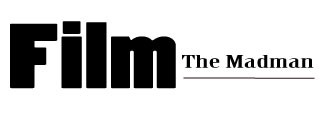Notes on Movies II
Goodbye to Language
The latest film from 84-year-old French director Jean-Luc Godard defies interpretation. Godard’s ideas are as developed as the note section on your smartphone, but yet, as innovative as the phone itself. Together with his cinematographer Fabrice Aragno, Godard has created another new visual technique; first thought of in 1956, Godard wrote about the possibility of “multiple images” within a shot, which he now has put into action almost 50 years later, a shot which received a spontaneous applause break at Cannes: layering a pan shot and a stationary one, Godard achieves, to astonishing effect, a surreal take-within-a-take allowing the audience to interpret two separate moments at once. Goodbye to Language is neither accessible or entertaining (even with its potty humor), but Godard still has as rebellious and exciting an attitude as he did 50 years ago. 70 minutes. Streaming on Netflix.
All That Heaven Allows
A staunch melodrama, All That Heaven Allows works in every aspect its soapy-genre allows, that of surface conflict and overstated drama — but boy does it work. Influencing the later Fassbinder film, Ali: Fear Eats the Soul (on interracial age gap relationships), All That Heaven Allows follows the story of a widowed upper-class sophisticate (Jane Wyman), who begins a relationship with her young gardener (Rock Hudson). Wyman’s character is the kind of suburban socialite that stands apart from her conservative friends. With Wyman’s approachable face and kind warmth, she, understandably, falls in love with a man (Hudson) who “doesn’t read Walden, he lives it.” Shot on stunning technicolor, All That Heaven Allows is visually and emotionally gorgeous. Directed by Douglas Sirk. Released in 1955. 90 minutes.
The Babadook
2014’s seminal horror film, The Babadook, follows the immense plight of a single mother (Essie Davis) and her troubled young son (Noah Wiseman). Unlike many contemporary horror films, The Babadook rather than create scares and frights, instead opts out for intense bleakness and cringe-inducing sadness. Director Jennifer Kent is an exciting newcomer, albeit sometimes heavy-handed in her themes. Premiered at the 2014 Sundance Film Festival. 94 minutes. Streaming on Netflix.
Going Clear: Scientology and the Prison of Belief
The biggest documentary release so far this year, Going Clear (adapted from the novel Going Clear: Scientology, Hollywood and the Prison of Belief) portrays a concise history of Scientology and its controversies. Although it doesn’t get as in-depth as the novel it’s based on, Going Clear is an efficient, fascinating documentary. Premiered at the 2015 Sundance Film Festival. Directed by Alex Gibney. 119 minutes. Streaming on HBO.


Haven’t seen GTL, but the other three are solid. Of course the Sirk triumphs above all, especially given the fact that it influenced not one, but two other masterpieces (Far From Heaven). I thought Babadook worked as a modern day thriller, and Going Clear was scathing and kept my attention, but agree that it didn’t (and probably couldn’t) measure up with the book.)
LikeLike
Haven’t seen Far From Heaven (yet, I call myself a Todd Haynes fan…) — and I’ve never told anyone this before but I’m not a huge fan of Ali: Fear Eats the Soul, it was my first Fassbinder film and I was slightly disappointed from the hype.
I’m glad Going Clear didn’t try to cover the whole book… Wouldn’t have been able to get as in-depth as it did with the few subjects it did cover.
Thanks for the comment, Aaron.
LikeLiked by 1 person
That’s interesting that you didn’t like Ali. It is one of my favorites Fassbinders, but I could see how it would leave people cold. FFH is more in the vein of Sirk than Fassy, so I’m pretty sure you’ll love it as a Haynes fan. IMO it is his best work.
LikeLiked by 1 person